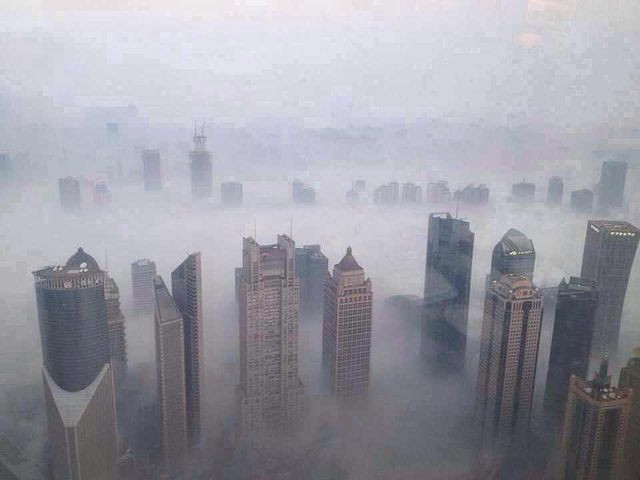China’s Smog Crisis Gets PR Makeover: Media Attempts Positive Spin By Listing 5 ‘Unforeseen Rewards’ Of The Bad Air

On Sunday, with walls of smog engulfing China, Chinese Central Television (CCTV) published a piece on its website that attempted to shed a positive light on the ongoing air pollution crisis. According to Time, the site said the smog had these five surprising benefits:
1. It unifies the Chinese people.
2. It makes China more equal.
3. It raises citizen awareness of the cost of China’s economic development.
4. It makes people funnier.
5. It makes people more knowledgeable (of things like meteorology and the English word haze).
Of course, to the millions of people living in China, it’s hard to believe that the severe air pollution crisis has any actual rewards. And while the piece may have been “well-intentioned satire,” as Time puts it, some Chinese citizens and newspapers didn’t quite find the humor in it. "Is the smog supposed to lift if we laugh about it?" wrote the Beijing Business Today, according to Reuters. "Smog affects our breathing. We hope it does not affect our thinking."
Beijing Business Today is right. The reality of the smog emergency in China is monumental, and it’s certainly no laughing matter. In October, the pollution shut down Harbin, one of northeastern China’s largest cities. (Harbin has a population of about 11 million people and is roughly the size of New York and Philadelphia combined.) The air pollution level, evidenced by the fog, was 40 times higher than the World Health Organization’s (WHO) safety standard. School, traffic, and air travel were all impacted by the smog.
So maybe, a little while from now after the smog has cleared and the crisis is over, people will look back at the bad air debacle and laugh. But for now, media and the government alike will continue to try to find the silver lining. Take the Global Times, for example. The paper wrote: “Smog may affect people’s health and daily lives, but on the battlefield, it can serve as a defensive advantage in military operations." And they, much like CCTV, are also on the wrong end of an attempt at optimism.



























